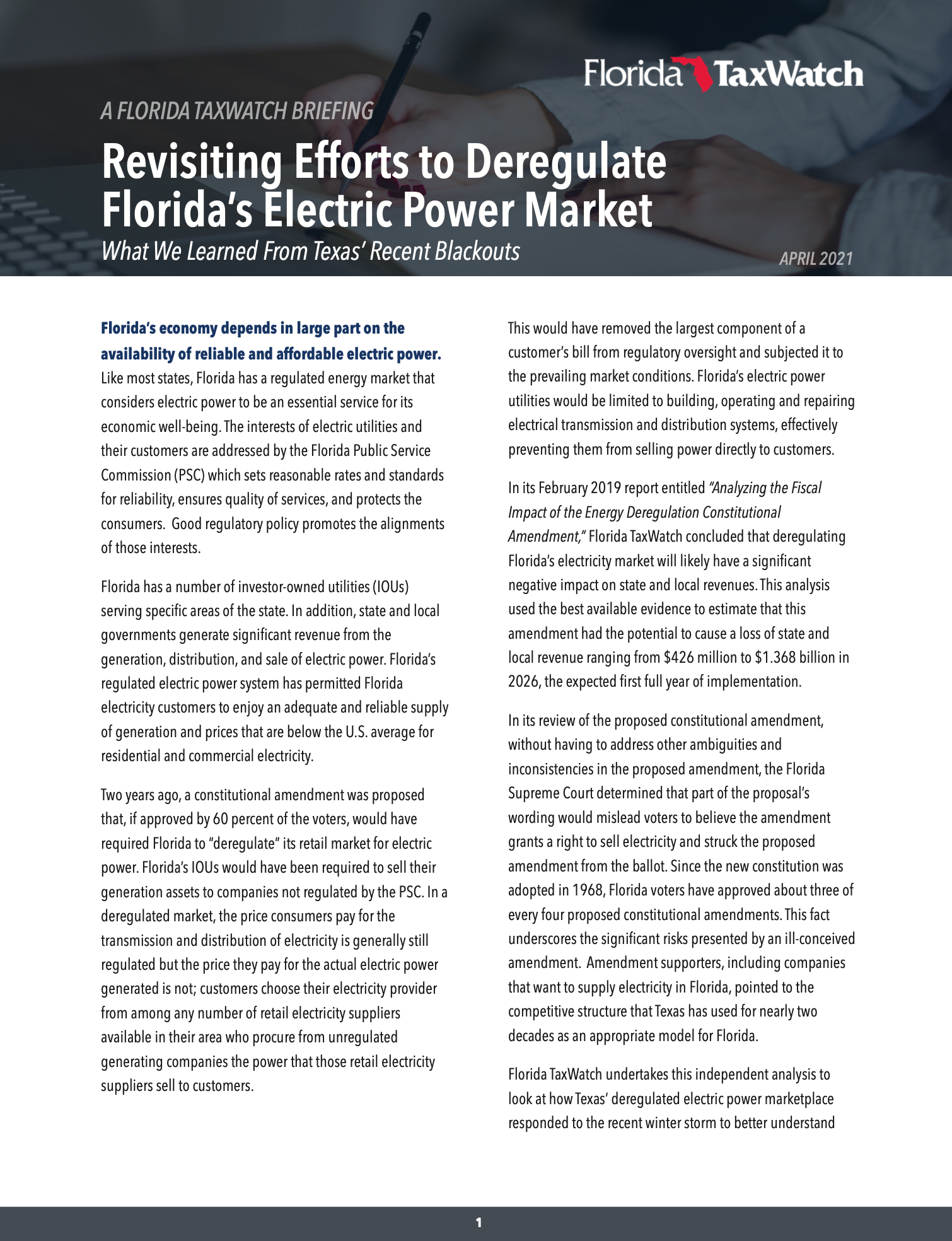Revisiting Efforts to Deregulate Florida’s Electric Power Market What We Learned from Texas' Blackouts

Florida’s economy depends in large part on the availability of reliable and affordable electric power. Like most states, Florida has a regulated energy market that considers electric power to be an essential service for its economic well-being. The interests of electric utilities and their customers are addressed by the Florida Public Service Commission (PSC) which sets reasonable rates and standards for reliability, ensures quality of services, and protects the consumers. Good regulatory policy promotes the alignments of those interests.
Two years ago, a constitutional amendment was proposed that, if approved by 60 percent of the voters, would have required Florida to “deregulate” its retail market for electric power. Florida’s IOUs would have been required to sell their generation assets to companies not regulated by the PSC. In a deregulated market, the price consumers pay for the transmission and distribution of electricity is generally still regulated but the price they pay for the actual electric power generated is not; customers choose their electricity provider from among any number of retail electricity suppliers available in their area who procure from unregulated generating companies the power that those retail electricity suppliers sell to customers.
In Texas, a 2016 pricing analysis affirmed previous findings that Texans living in deregulated areas had historically paid more for electricity, on average, than Texans living in areas exempt from deregulation. All told, Texans living in deregulated areas would have saved nearly $25 billion dollars in lower residential electricity bills from 2002 through 2014 had they paid the same average prices during that period as Texans living outside deregulation. This “lost savings” amounts to more than $5,100 for a typical household.
The failure of Texas’s market-driven, deregulated electric power network begs the questions “what if the ballot proposal had passed review by the Florida Supreme Court” and “what if Florida voters had voted to deregulate Florida’s electric power network?”